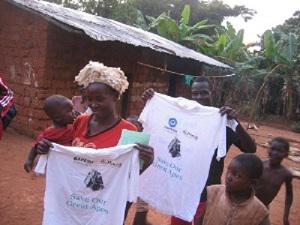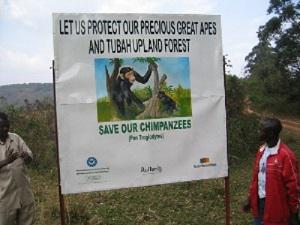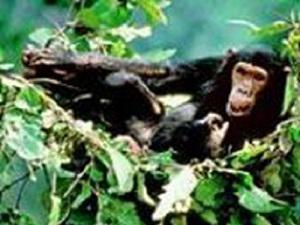Christian Tabifor
Other projects
This project aims to help in the conservation of the great apes population in Tubah Upland Forest through community awareness campaign.

Villagers express joy and committment after education talk.
The project “Awareness Campaign for the Protection of endangered Great Apes in the Tubah Upland Forest of Cameroon” will span for a three month period. The goal of the program is to help in the conservation of the great apes population in their natural habitat through community awareness campaign. The great apes face threat from habitat loss, illegal forest burning, local conflicts, capture and sale of live specimens, and expansion of agriculture. This project will discourage burning of the forest and hunt of great apes for bush meat in the villages of Bambui and Kedjom-Ketingoh (Small Banbanki). It will educate and enlighten the local people on the importance of conserving the great apes in their natural habitat in order to prevent extinction.

Awareness Billboard at Main Entrance to Tubah Upland Forest.
The project seeks to ignite a robust alert message and consciousness across to the mass local population on the need for nature conservation. It will be an inspiration and a strong motivation for the local communities to be actively involved in the management of their local forest resources. The project will create new avenues and opportunities for nature protection (ecotourism and environmental education in local schools curricula).

Major activities of the program subsume radio talk programs in the local dialect (permitting to reach the mass) and in English; door-to-door sensitization and distribution of tracks by volunteers; tee-shirt alert messages, open community meetings and interactive discussion with village communities; capacity building workshops for community groups and villagers and great ape conservation strategies. As a vital strategy in making the program very participatory and a winning one or making it meet its desired objectives, it will cut across all sections of the community involving experienced nature conservation experts, and will develop a close gossamer-thread of ally with community based groups, NGOS, community social workers, local youths and women’s groups (commonly called “njangi’s), village heads, Muslims, priests, farmers groups, hunters, local elites, the local media and the national wildlife department (Ministry of Environment and Nature).